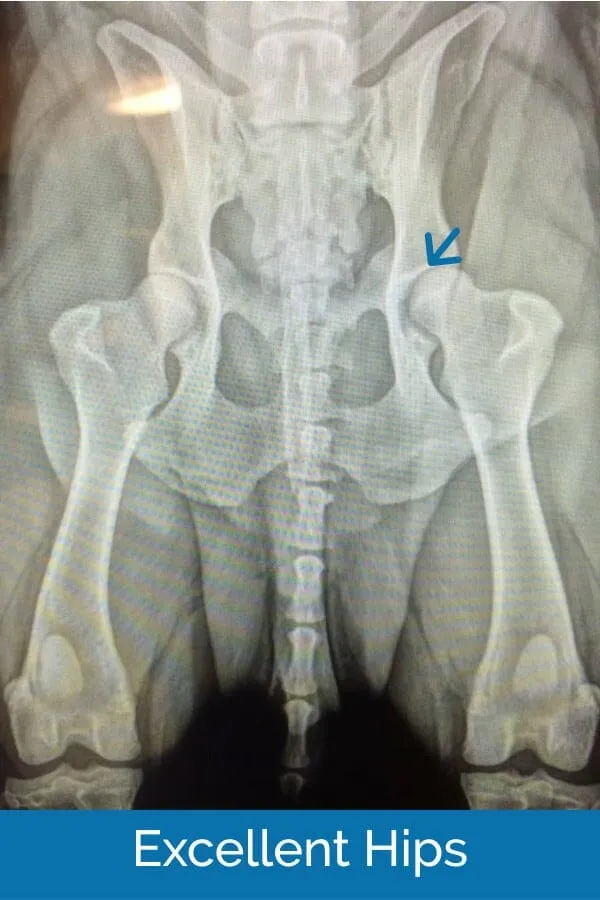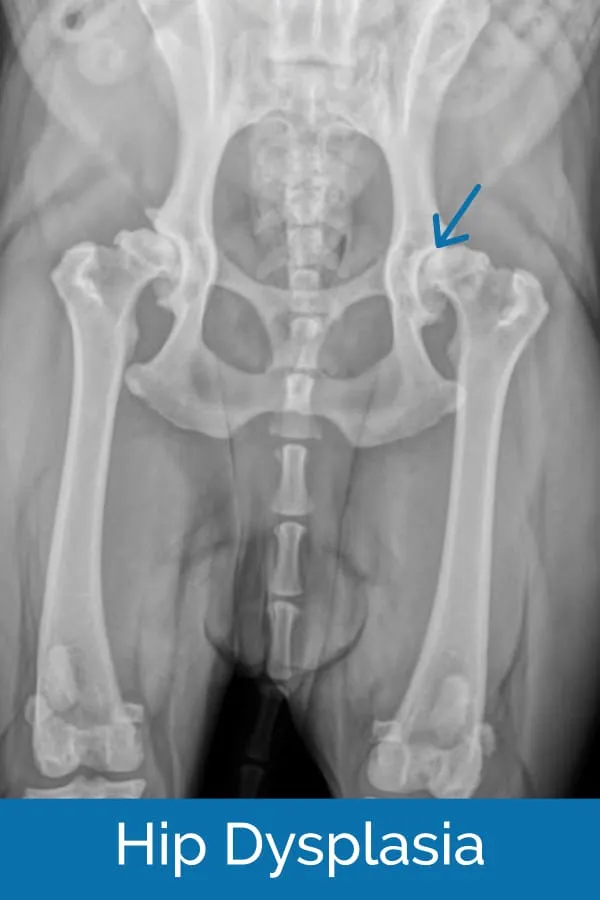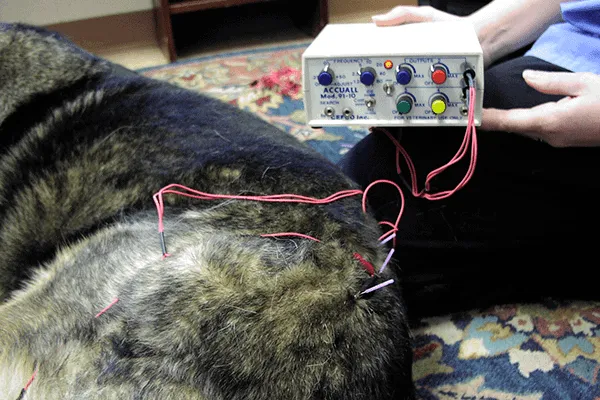Canine hip dysplasia (CHD) stands as the most common inherited musculoskeletal condition affecting dogs, a source of significant discomfort and concern for many pet parents. While surgical interventions exist for severe cases, a vast majority of affected dogs thrive with conservative management, relying on a combination of supplements and effective medicine for hip dysplasia. This article, guided by insights from integrative veterinary expertise, delves into the top strategies for non-surgical treatment, offering a roadmap to finding the Best Medicine For Dogs With Bad Hips and ensuring they lead comfortable, fulfilling lives.
Canine hip dysplasia is a congenital malformation of the hip joint, or often both hips, leading to instability and, over time, painful arthritis. Surgical treatment, while sometimes necessary, is invasive, costly, and frequently requires a specialized veterinary surgeon. For many dog owners, surgery is not a viable option. Fortunately, extensive research, including a study published in the Journal of Small Animal Practice, indicates that approximately three-quarters of dogs suffering from hip dysplasia and secondary arthritis can maintain a normal, comfortable existence through conservative care. Understanding the condition and exploring the array of available treatments is the first step toward finding the most effective approach for your beloved companion.
 Vibrant German Shepherd in a healthy stance, representing optimal canine hip health before the need for treatment.
Vibrant German Shepherd in a healthy stance, representing optimal canine hip health before the need for treatment.
Understanding and Diagnosing Canine Hip Dysplasia
To effectively address hip pain and select the best medicine for dogs with bad hips, it’s crucial to grasp the underlying pathology. The hip is a “ball and socket” joint, where the head of the femur (ball) fits snugly into the acetabulum (socket). In healthy dogs, this design ensures secure, stable movement. Dogs with hip dysplasia, however, have malformed bones, leading to insufficient coverage of the femoral head by the acetabulum. This structural flaw causes laxity in the joint, predisposing dogs to pain, inflammation, and even dislocation.
Diagnosis typically involves a thorough history, evaluation of clinical signs, a comprehensive physical examination, and diagnostic imaging like X-rays.
Clinical Signs of Bad Hips in Dogs
The clinical signs of hip dysplasia can manifest at a young age, often subtly. One early indicator is a “bunny-hopping” gait, where the dog keeps both hind legs together while walking or running. Young dogs without significant arthritis might display only this symptom.
As dogs age, secondary arthritis often develops, exacerbating pain and inflammation in the hips. Signs of arthritis stemming from hip dysplasia can include:
- Difficulty or reluctance to rise: Especially after periods of rest.
- Stiffness: Noticeable after lying in one position for an extended time.
- Loss of muscle mass: Particularly in the rear limbs, indicating disuse or compensatory shifting of weight.
- Weight shifting: Dogs may shift their weight to their front legs to alleviate pressure on their hips.
- Limping: This can be intermittent and might shift between hind legs.
- Reluctance to engage in physical activities: Such as running, climbing stairs, or jumping.
Confirming Diagnosis with X-rays
Your veterinarian will perform a physical exam, meticulously checking for signs of pain or instability when manipulating the hips through their range of motion. They might also check for the Ortolani sign, a distinctive “clunk” sound heard when a dysplastic hip is manipulated, though this may require sedation for an accurate assessment in tense patients.
X-rays are generally definitive for diagnosing hip dysplasia. These images allow veterinarians to visualize the joint structure and assess the degree of malformation and arthritis.
 Clear X-ray of canine hips graded as 'excellent' by OFA, illustrating normal joint structure for comparison with bad hips.This X-ray demonstrates an “excellent” hip, as certified by the Orthopedic Foundation for Animals (OFA), characterized by a deep, tightly fitting ball-and-socket joint.
Clear X-ray of canine hips graded as 'excellent' by OFA, illustrating normal joint structure for comparison with bad hips.This X-ray demonstrates an “excellent” hip, as certified by the Orthopedic Foundation for Animals (OFA), characterized by a deep, tightly fitting ball-and-socket joint.
 Diagnostic X-ray of a dog's hip displaying severe dysplasia, indicative of the condition requiring effective medication.In contrast, this radiograph illustrates a dog with hip dysplasia, showing a shallow socket and poor femoral head coverage.
Diagnostic X-ray of a dog's hip displaying severe dysplasia, indicative of the condition requiring effective medication.In contrast, this radiograph illustrates a dog with hip dysplasia, showing a shallow socket and poor femoral head coverage.
Exploring the Best Medicine for Dogs with Bad Hips
Treatment approaches for canine hip dysplasia fall into two main categories: surgical and non-surgical. While surgery can be highly effective, especially for young dogs without significant arthritis, it’s not always the preferred or possible option. This article will focus on the comprehensive range of non-surgical treatments, including various medications, supplements, and therapies, that constitute the best medicine for dogs with bad hips who are managed conservatively. The primary goal of these treatments is to control inflammation and pain, thereby significantly improving mobility and quality of life.
Surgical Interventions (Brief Overview)
For comprehensive information on surgical options like Juvenile Pelvic Symphysiodesis (JPS), Triple Pelvic Osteotomy (TPO), Total Hip Replacement (THR), or Femoral Head/Neck Ostectomy (FHO/FHNO), resources like the American College of Veterinary Surgeons’ website offer excellent insights. However, given the focus on non-surgical care, let’s explore the medical and lifestyle interventions available.
Top 10 Non-Surgical Strategies: Finding the Best Medicine for Dogs with Bad Hips
There is a wide array of non-surgical treatments that can dramatically improve the lives of dogs with hip dysplasia. These strategies encompass western medicine, specialized supplements, and alternative therapies. While they don’t cure the underlying anatomical issue, they effectively manage the symptoms and improve comfort.
1. Weight Management: A Foundation for Healthy Hips
Though not a conventional “medicine,” proper weight management is arguably one of the most impactful interventions for dogs with bad hips. Simply put, excess weight places immense stress on already compromised joints. Larger breeds, more prone to hip dysplasia, feel this impact even more profoundly; an extra 10 pounds can significantly worsen joint pain.
 Overweight Labrador Retriever exhibiting hind limb muscle atrophy, a common sign in dogs with bad hips benefiting from weight management and appropriate medicine.An overweight Labrador Retriever, a breed often affected by hip dysplasia, shows hind limb muscle atrophy—a clear indicator of the condition exacerbated by excess weight.
Overweight Labrador Retriever exhibiting hind limb muscle atrophy, a common sign in dogs with bad hips benefiting from weight management and appropriate medicine.An overweight Labrador Retriever, a breed often affected by hip dysplasia, shows hind limb muscle atrophy—a clear indicator of the condition exacerbated by excess weight.
Beyond mechanical stress, fatty tissue produces inflammatory hormones that contribute to a chronic inflammatory state, which can accelerate the progression of osteoarthritis in the hips. Maintaining an ideal canine body condition score is paramount for joint health.
2. Nonsteroidal Anti-Inflammatory Drugs (NSAIDs)
When considering the best medicine for dogs with bad hips, NSAIDs are often a first-line pharmaceutical treatment. These medications are highly effective in reducing inflammation and alleviating pain, often providing significant relief for painful dogs. Common NSAIDs approved for veterinary use include:
- Carprofen
- Meloxicam
- Firocoxib
- Deracoxib
- Grapiprant
While NSAIDs can seem miraculous, they do carry potential side effects. For dogs on long-term NSAID therapy for osteoarthritis, veterinarians typically recommend routine bloodwork to monitor organ function and ensure the medication is well-tolerated. Always administer NSAIDs under veterinary guidance.
3. Multi-Modal Pain Management
If NSAIDs alone don’t provide sufficient pain relief, veterinarians often employ a multi-modal approach, combining various medications and therapies to target pain pathways at different points. This strategy aims for more complete pain management by addressing the pain signal as it travels from the hips to the spinal cord and then to the brain.
Additional medications that may be prescribed alongside or in place of NSAIDs include:
- Gabapentin: This medication helps manage neuropathic pain by calming overactive neurons, reducing the transmission of pain signals. It is one of the most commonly prescribed non-NSAID medications for hip dysplasia in dogs.
- Amantadine: Initially an antiviral, amantadine has shown efficacy in reducing chronic arthritic pain by influencing dopamine levels in the brain. Studies indicate that combining amantadine with an NSAID can lead to more dramatic improvements in activity levels compared to an NSAID alone.
- Tramadol: While research suggests tramadol alone may be insufficient for severe arthritic pain, it can be a valuable addition to a multi-modal pain protocol. It contributes to pain relief by elevating serotonin levels and exerting mild effects on opioid receptors in the brain and spinal cord.
4. Joint Health Supplements (Nutraceuticals)
Oral joint supplements are widely recommended as part of the best medicine for dogs with bad hips. While ongoing research continually refines our understanding of their efficacy and optimal dosages, most ingredients are well-tolerated with minimal side effects, making them a safe addition to a treatment plan.
The cornerstone ingredients are typically glucosamine and chondroitin, which support cartilage health. Beyond these, other beneficial compounds found in quality supplements include:
- MSM (Methylsulfonylmethane): Known for its anti-inflammatory properties.
- Avocado/Soybean Unsaponifiables (ASU): A plant extract that can help reduce inflammation and stimulate cartilage repair.
- Herbal blends: Turmeric/curcumin, bromelain, boswellia, corydalis, and devil’s claw are increasingly used for their natural anti-inflammatory benefits.
- New Zealand deer velvet and green-lipped mussel: These ingredients are prized for their comprehensive joint support, aiding in maintaining healthy tissue, cartilage, and joints.
Buyer Beware: The market for joint supplements is vast and largely unregulated by entities like the FDA. This means product quality can vary significantly, with little oversight on ingredient accuracy. Always consult your veterinarian before selecting a joint supplement to ensure you choose a reputable, high-quality product.
5. Omega-3 Fatty Acids
Omega-3 fatty acids are a crucial component of the best medicine for dogs with bad hips due to their powerful anti-inflammatory effects throughout the body. By reducing systemic inflammation, they can significantly benefit stiff and painful joints. Omega-3 supplements are generally safe, offering numerous health benefits with minimal side effects, making them a routine recommendation for dogs with hip dysplasia.
6. Adequan Injections for Cartilage Support
Adequan Canine, a prescription polysulfated glycosaminoglycan (PSGAG), offers a potent injectable alternative to oral joint supplements. Delivered intramuscularly, Adequan penetrates joint cartilage more effectively than many oral products, working to maintain and repair cartilage integrity. While not universally effective, some dogs show dramatic improvements in mobility and comfort, highlighting its potential as a valuable tool in managing hip dysplasia.
7. Appropriate, Gentle Exercise and Physical Therapy
“Use it or lose it” is a principle that applies strongly to musculoskeletal health. While vigorous exercise can be detrimental, appropriate and gentle physical activity is vital for dogs with hip dysplasia. Studies suggest that controlled exercise, rather than strict restriction, may lead to lower lameness scores.
The growing field of canine rehabilitation offers specialized therapies, such as underwater treadmills, which provide low-impact exercise to build muscle strength and improve joint function without undue stress. Consulting a certified rehabilitation practitioner can tailor an exercise program that forms a critical part of the best medicine for dogs with bad hips.
8. Acupuncture and Laser Therapy
Alternative treatments like acupuncture and laser therapy have demonstrated considerable success in pain management for dogs with hip dysplasia. These therapies can be used individually, but often yield synergistic effects when combined.
 German Shepherd undergoing electroacupuncture, a complementary therapy for managing pain in dogs with bad hips, alongside conventional medicine.This German Shepherd benefits from electroacupuncture, a complementary therapy effectively managing hip dysplasia pain by stimulating natural pain relief.
German Shepherd undergoing electroacupuncture, a complementary therapy for managing pain in dogs with bad hips, alongside conventional medicine.This German Shepherd benefits from electroacupuncture, a complementary therapy effectively managing hip dysplasia pain by stimulating natural pain relief.
Acupuncture works by stimulating specific points to release endorphins—the body’s natural pain relievers—and relax tense muscles in the lower back and hind end, which are often strained due to compensatory movements. Many dogs show improvement after just a few sessions.
Laser therapy, originally used in human medicine, uses focused light to penetrate tissues, increasing blood flow and accelerating healing at the cellular level. Modern lasers deliver effective treatment in just minutes, and most dogs tolerate the process very well.
9. CBD Oil for Pain and Inflammation
Cannabidiol (CBD) oil has emerged as a promising area of interest for managing pain and inflammation in both human and veterinary medicine. Unlike Delta-9 tetrahydrocannabinol (THC), CBD does not cause psychoactive effects; instead, it interacts with receptors that help reduce pain and inflammation.
Recent veterinary studies have shown that dogs treated with CBD oil often exhibit improved pain scores reported by owners and enhanced mobility compared to placebo groups. While early research is encouraging regarding CBD oil as part of the best medicine for dogs with bad hips, its recommendation and prescription by veterinarians remain a legally complex area, with regulations varying by region. Similar to supplements, the CBD market for animals lacks extensive regulation, making veterinary consultation essential before use.
10. ToeGrips® Dog Nail Grips for Enhanced Mobility
Dogs with hip dysplasia frequently struggle with traction on slippery surfaces, making it difficult to rise and walk confidently. ToeGrips® dog nail grips are designed to address this challenge by fitting snugly onto a dog’s toenails, restoring natural traction on hardwood floors and other smooth surfaces.
These non-slip grips can significantly enhance comfort and mobility for dogs with bad hips, providing crucial stability and boosting their confidence in navigating their environment. For dogs struggling to move freely, ToeGrips® can be a transformative addition to their care routine.
A Multimodal Approach: The Key to the Best Medicine for Dogs with Bad Hips
Ultimately, you are your dog’s best advocate. If your dog with hip dysplasia is exhibiting signs of pain—such as reduced activity or interaction with the family—it’s time to consult your veterinarian about exploring treatment options. Pain is a profound inhibitor of quality of life for any animal, and effective pain management can profoundly improve a dog’s physical and mental well-being.
When it comes to treating the pain associated with hip dysplasia, a multimodal therapy approach consistently yields the greatest success. This means combining several of the strategies discussed in this article, tailored to your dog’s individual needs and responses. Just like humans, dogs may react differently to various products and therapies, requiring a personalized treatment plan.
Close collaboration with your veterinarian is paramount to achieving the best possible outcome for your dog, ensuring they receive the most appropriate and effective care available.
Have Questions About Treating Canine Hip Dysplasia?
Please share your thoughts or questions in the comments below. We welcome your input and experiences.
Note: This article provides general information and should not be used as a substitute for professional medical advice. Always consult with your local veterinarian for diagnosis and treatment of your pet’s specific medical conditions.
